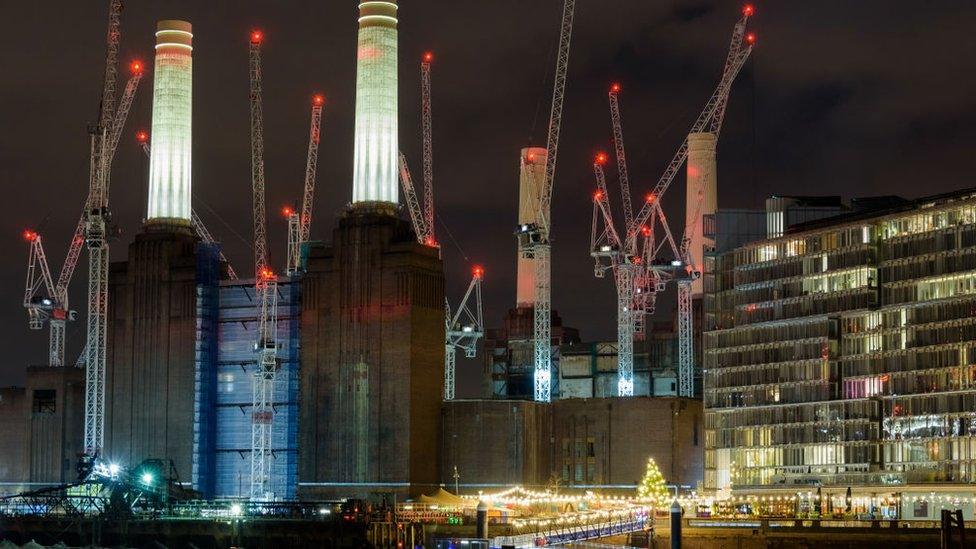Carillion directors to be investigated
- Published
The Carillion collapse: What does it mean?
The government has ordered a fast-track investigation into directors at the failed construction firm Carillion.
The UK's second biggest construction firm went into liquidation on Monday, after running up losses on contracts and struggling with heavy debts.
The business secretary has asked for an investigation by the Official Receiver to be broadened and fast-tracked.
The conduct of directors in charge at the time of the company's failure and previous directors will be examined.
Carillion's business is now in the hands of the official receiver, which is reviewing all of Carillion's contracts. The company employed 43,000 people worldwide, 20,000 in the UK, and had 450 contracts with the UK government.
The government has said that staff and contractors working on public sector service contracts will continue to be paid. But there is concern that big projects, including the construction of hospitals and roads, will be delayed while the details are worked out.
There are also big worries for an estimated 30,000 smaller firms which have been working on Carillion projects in the private sector.
Many are owed money and face a wait to find out if they will get any of it back.
On Monday the government said that firms working on Carillion's private contracts would be paid for another 48 hours. But the latest statement from the Insolvency Service, external indicates there might be more flexibility.
It says that the Liquidator is talking to Carillion's private sector clients about which services will continue; however contracts will be ended if the client no longer wants to pay for them.
"No one has been dismissed at this point and staff will continue to be paid for the work they perform," a spokesperson for the Insolvency Service said.

'I had to make 10 people redundant yesterday'
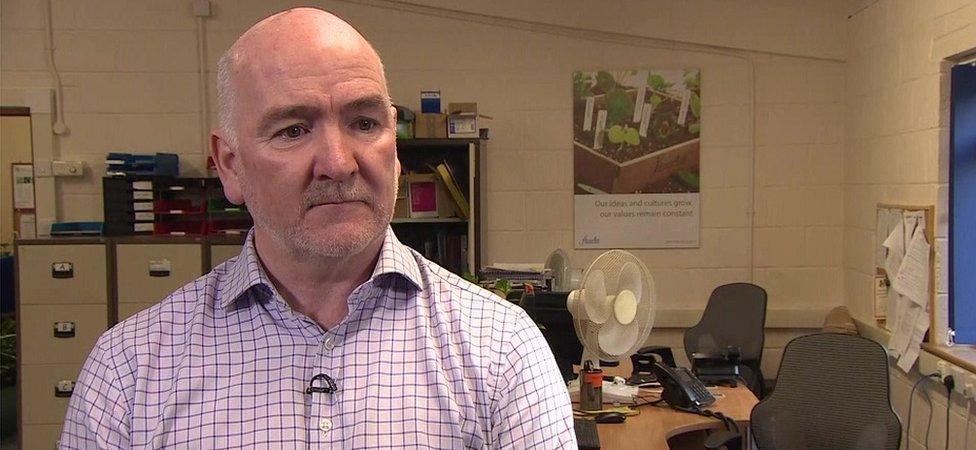
Andy Bradley is the managing director of Flora-tec, which is owed £800,000 by Carillion for landscaping services.
"The government actively encouraged businesses like mine... to get involved in public sector contracts, to make sure the little guy got a slice of the pie.
"When Carillion started to get into trouble last year we were considering that we would scale back our involvement with them.
"However... the government continued to give them billion-pound contract after billion-pound contract and that said to me, as a small supplier, that the government had done their due diligence.
"We were following the government lead... only to be given a sucker punch.
"I had to make 10 people redundant yesterday. That's 10 people with mortgages, car loans, all that stuff. It's an absolute disgrace."

Carillion was hit by cost overruns on big projects, problems with contracts in the Middle East and a large deficit in the company pension scheme.
In particular three building projects in the UK had resulted in hefty losses:
The £350m Midland Metropolitan Hospital in Sandwell: opening delayed to 2019 due to construction problems
The £335m Royal Liverpool Hospital: completion date repeatedly pushed back amid reports of cracks in the building
The £745m Aberdeen bypass: delayed because of slow progress in completing initial earthworks
Chief executive Richard Howson stepped down in July last year after a profit warning. He had been in charge since the end of 2011.
Keith Cochrane was appointed as interim chief executive.
There has been much criticism over the size of Mr Howson's pay award in 2016 which, including bonuses, totalled about £1.5m. He is also due to receive a salary until October this year.
Finance director Richard Adam, who retired in December 2016 after nine years at Carillion received almost £1.1m in salary and bonuses in 2016.
Government 'too close'
As well as the conduct of directors, the role of Carillion's auditor KPMG will be examined by the Financial Reporting Council.
"It is important we quickly get the full picture of the events which caused Carillion to enter liquidation," said Business Secretary, Greg Clark, in a statement.
"Any evidence of misconduct will be taken very seriously," he said.
Shadow chancellor John McDonnell said the government had become "too close" to Carillion.
"We need full transparency on meetings and discussions that took place between government ministers, civil servants and representatives of Carillion and what warnings were given to ministers and what actions recommended implemented or not," he said.
Chief Secretary to the Treasury Liz Truss described his comments as "cheap political shots".
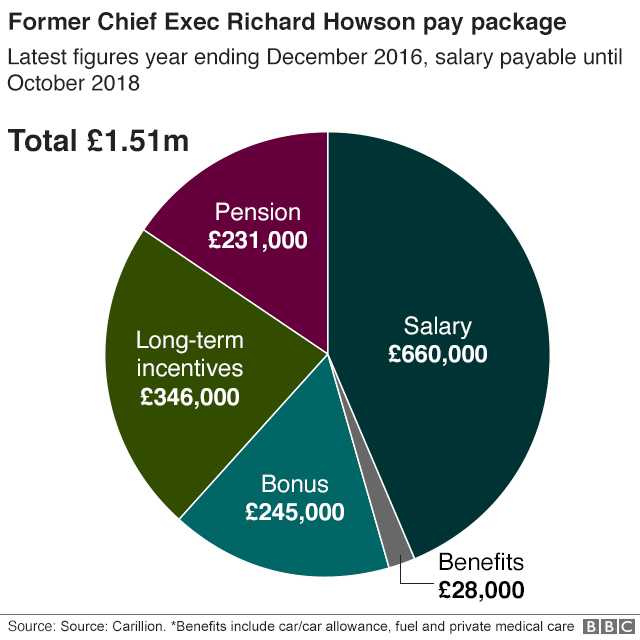

Are you a Carillion employee or contractor? Please share your experience with us by emailing haveyoursay@bbc.co.uk, external.
You can also contact us in the following ways:
Tweet: @BBC_HaveYourSay, external
WhatsApp: +44 7555 173285
Text an SMS or MMS to 61124 (UK)
Please read our terms & conditions
- Published16 January 2018
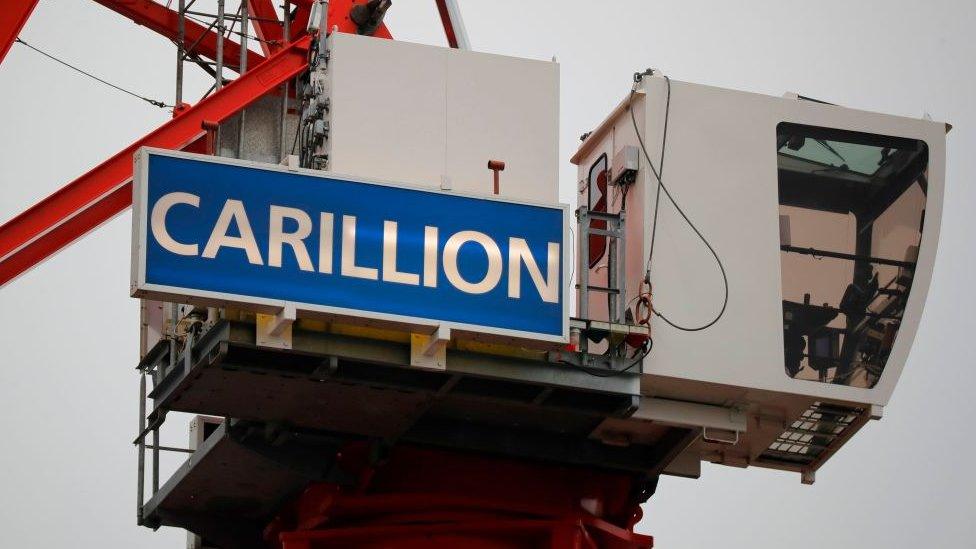
- Published15 January 2018
- Published15 January 2018
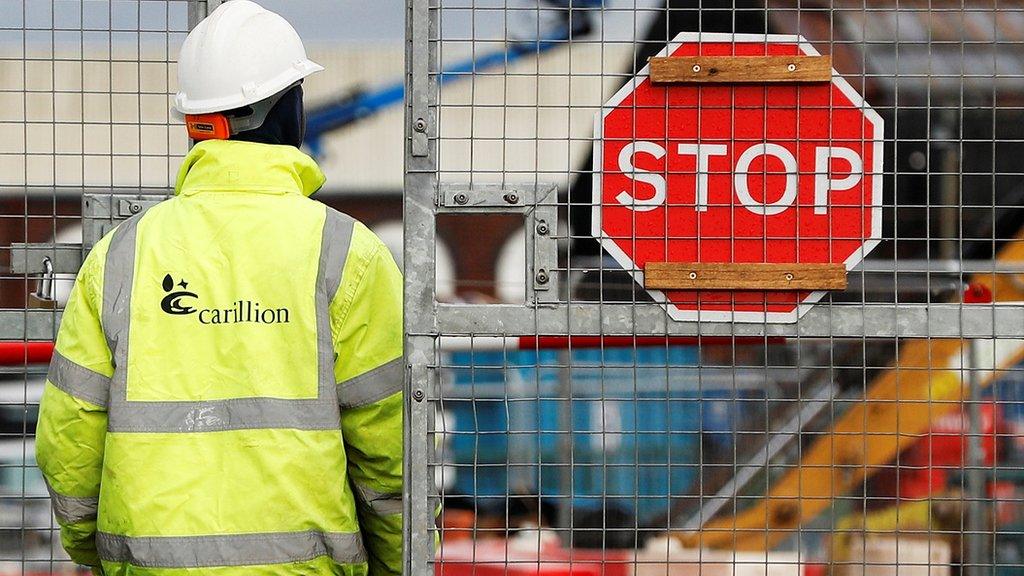
- Published15 January 2018
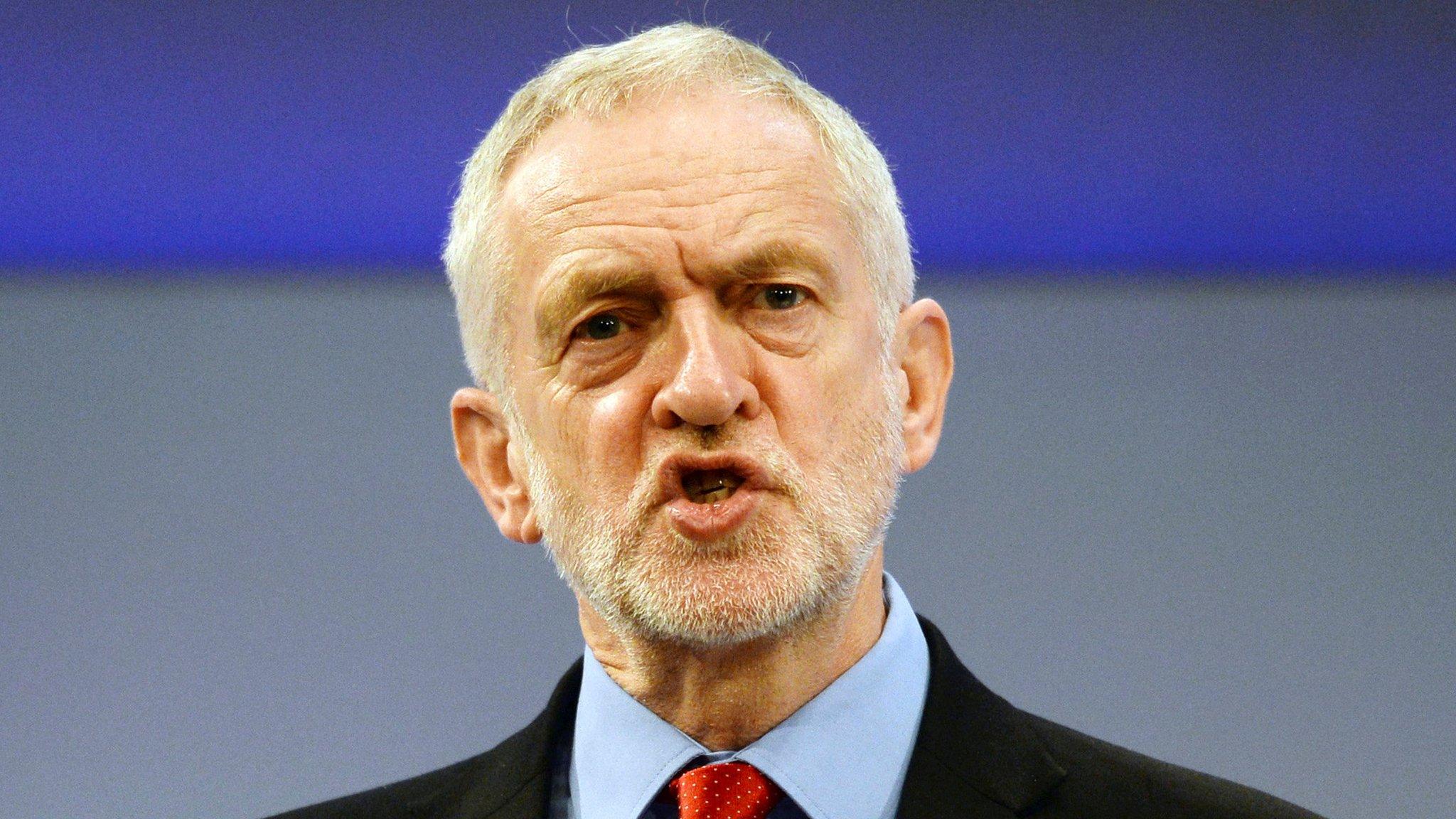
- Published15 January 2018
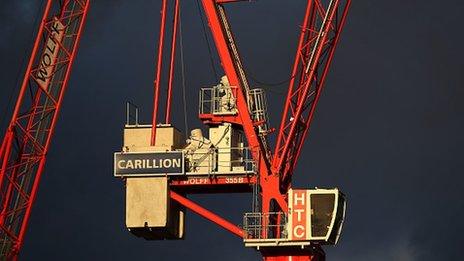
- Published15 January 2018
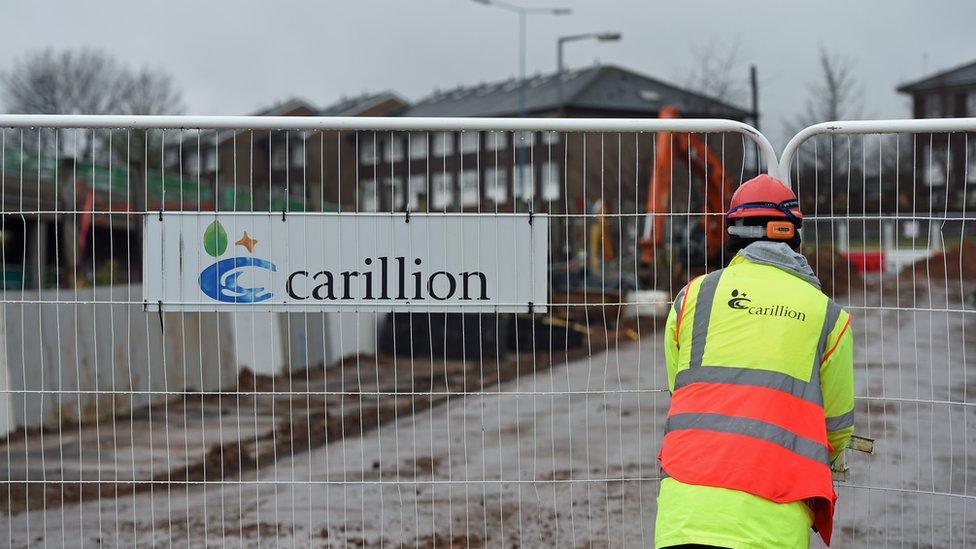
- Published15 January 2018
